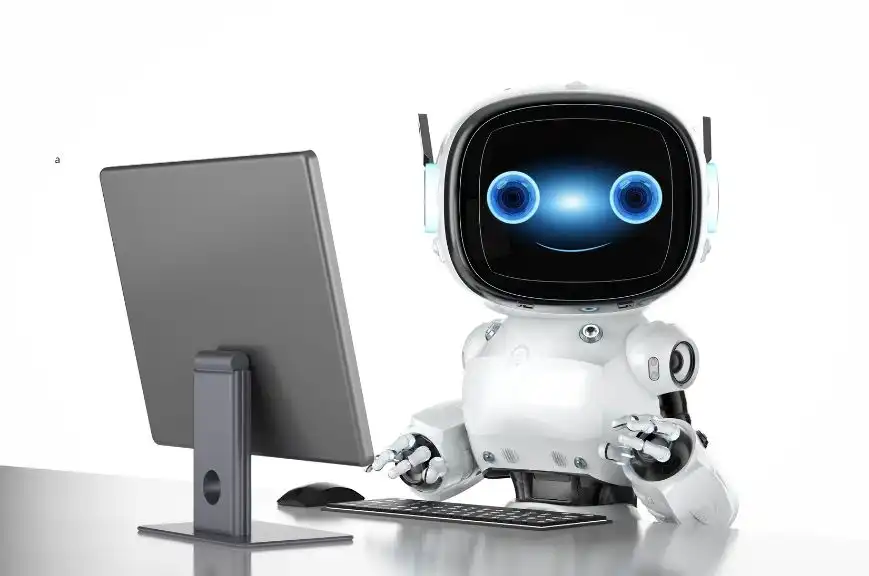Pesquisa realizada pela IntelliGente Consult revela o impacto da inteligência artificial (IA) nas organizações. Entre os dados obtidos no levantamento da empresa de consultoria e mentoria especializada em estratégias, programas e projetos empresariais, 57% dos respondentes afirmam que a partir da utilização da IA não houve mudanças em suas atividades, o que demonstra que mesmo diante de toda a transformação tecnológica, o capital humano se sobressai em importância para o desenvolvimento dos negócios. O levantamento, cujo perfil majoritário dos participantes é composto por profissionais com boas qualificações, atuando em empresas consolidadas no mercado, destaca também não haver registro de demissões com a implantação da IA.
A pesquisa IntelliGente Consult mostra ainda que 37% dos respondentes afirmam que a partir do uso das ferramentas de IA, suas tarefas tiveram “outros desdobramentos” e 7% passaram a assumir outra função.
“A maioria dos respondentes da pesquisa não observou impacto negativo em suas atividades pelo uso da IA”, afirma Fernanda Toledo, CEO da IntelliGente Consult. De acordo com a executiva, ao apontar a utilização de ferramentas de inteligência artificial, os profissionais têm elencado benefícios na execução de trabalhos, “que incluem evoluir de tarefas operacionais para atividades mais estratégicas e analíticas”.
Longe de ser um conceito futurista, a inteligência artificial tem remodelado o mercado de trabalho em ritmo acelerado. Embora na pesquisa IntelliGente Consult não haja indicativo de demissões a partir da utilização de ferramentas de IA, algumas atividades e funções passam por grandes transformações. “Um exemplo está no setor de atendimento ao cliente, dominado por chatbots e assistentes virtuais impulsionados por IA”, observa Aline Oliveira, sócia-diretora na Intelligente Consult. Caixas de varejo, funções analíticas básicas, aplicadas a finanças simples e relatórios, integram esta lista.
A percepção de que grandes empresas são mais aderentes à IA não se confirma no relatório anual “State of Sales and Marketing Report 2023/2024” realizado pela Pipedrive. De acordo com o levantamento, 42% das pequenas empresas menores (até 10 funcionários) utilizam IA contra 37% das médias empresas (11 a 100 trabalhadores) e 23% das grandes empresas (mais de 100 colaboradores).
Outro estudo “IA em micro, pequenas e médias empresas: Tendências, desafios e oportunidades”, desta vez divulgado pela Microsoft, indica que no topo das principais motivações das PMEs está a melhoria do atendimento e a satisfação do cliente. Alinhar-se aos concorrentes, garantir eficiência, produtividade e agilidade, assim como impulsionar a criatividade e o trabalho relevante também aparecem como prioridades.
O levantamento também aponta que a IA contribui positivamente na empresa para qualidade do trabalho (91%), satisfação do cliente (90%) e motivação e engajamento dos funcionários (88%).
No levantamento Intelligente Consut, as executivas ressaltam a importância do capital humano. “É fato que as operações nos mais diversos segmentos são bastante favorecidas pela inteligência artificial. No entanto, o desenvolvimento das organizações e a forma como são reconhecidas no mercado são ainda mais efetivos quando o trabalho valoriza as pessoas em todas as suas potencialidades”, afirma Aline Oliveira.
Em se tratando da disposição de pequenas e médias empresas no uso de IA, Fernanda Toledo observa ser fundamental para o gestor “ponderar sempre sobre a contratação de uma ferramenta mais barata, considerando que a inteligência artificial aplicada ao negócio não se desenvolve sozinha e depende de análise humana.
As executivas enfatizam também o papel das organizações no treinamento e na preparação dos profissionais. “Somente com conhecimento e o pleno desenvolvimento técnico as pessoas terão condições de usar as ferramentas de IA a favor de suas competências e, consequentemente, dos negócios”, diz a CEO.
Mesmo sendo um recurso cada vez mais utilizado, segundo Aline Oliveira a incorporação da inteligência artificial é um desafio enfrentado pelas PMEs. “Para melhor performar os negócios, sem que isso impacte em diminuição de postos de trabalho, a contratação de uma consultoria que faça um planejamento inteligente é estratégica para estas empresas”, diz.
Para as executivas da IntelliGente Consult, da mesma forma que a inteligência artificial abre oportunidades para setores que demandam complexas tomadas de decisão, os pequenos e médios empresários precisam considerar a inteligência emocional e as habilidades criativas. “Nenhuma máquina pode replicar estes atributos, e compreender peculiaridades aplicadas em cada ramo é crucial para a manutenção e o futuro do negócio”, conclui Fernanda Toledo.


